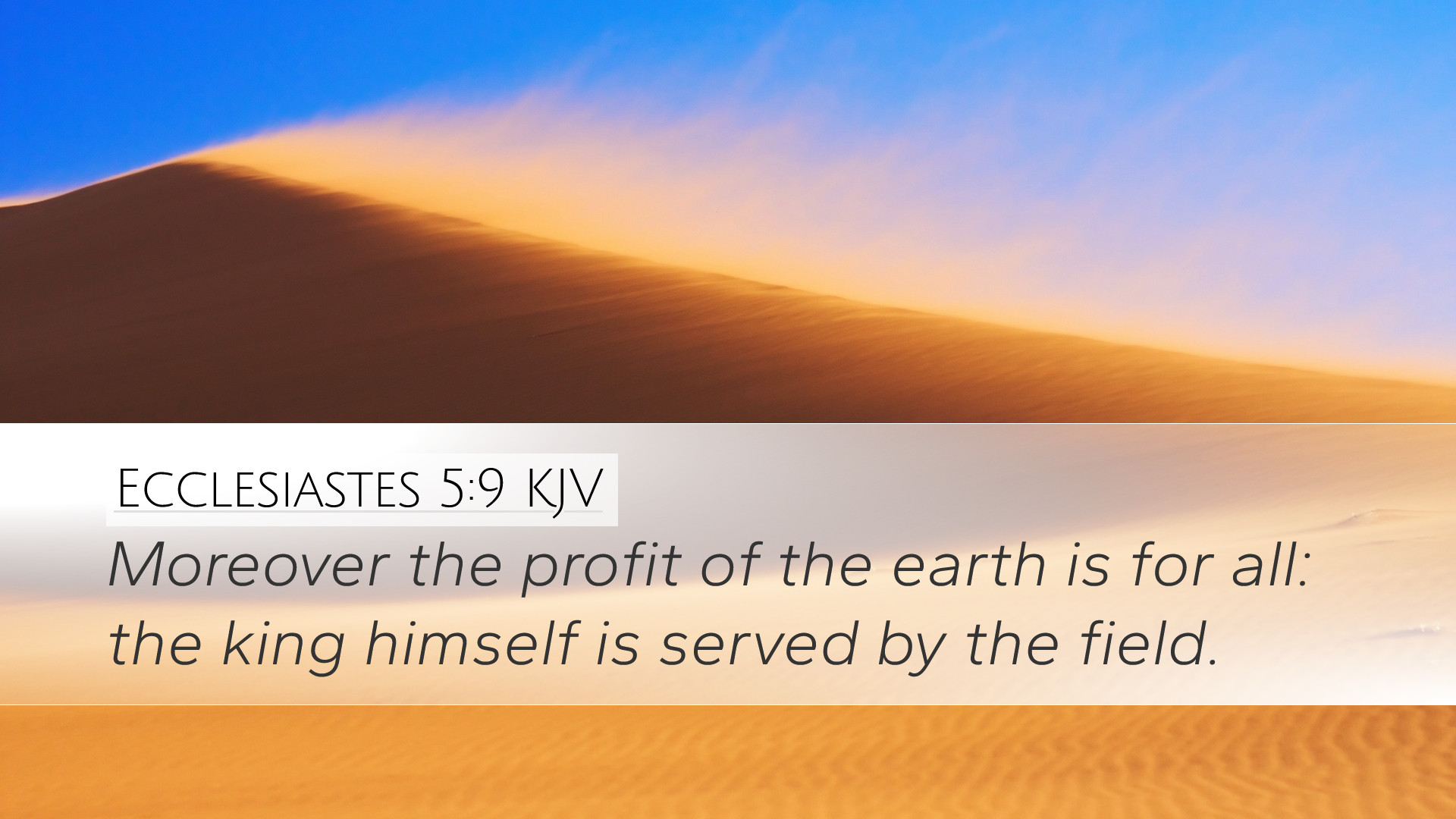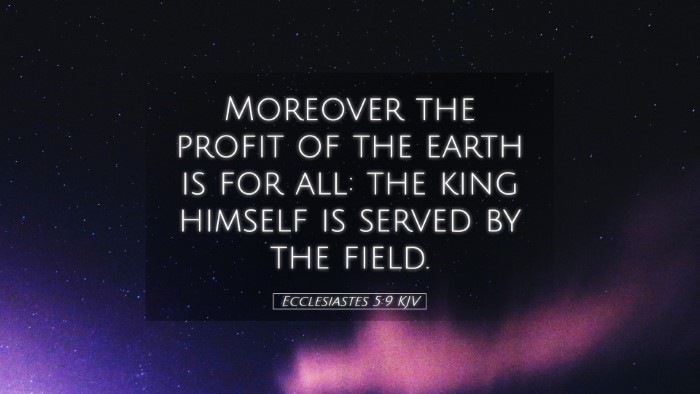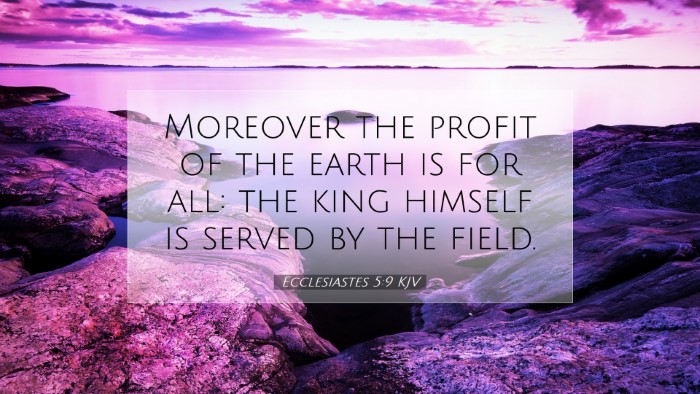Commentary on Ecclesiastes 5:9
Verse: Ecclesiastes 5:9 (KJV) - "Moreover, the profit of the earth is for all: the king himself is served by the field."
Introduction
The verse in Ecclesiastes serves as a profound reflection on the nature of profit and the shared benefits of the earth's resources. It can be seen as an observation about the interconnectedness of society, especially concerning the way wealth from the land operates within the structure of governance and humanity.
Contextual Background
Ecclesiastes, traditionally attributed to King Solomon, presents a sobering view of life, emphasizing the vanity of earthly pursuits. This book reflects on the transient nature of human endeavors and the divine order inherent in creation. Understanding this context enriches our comprehension of Ecclesiastes 5:9.
Commentary Analysis
Matthew Henry's Perspective
Matthew Henry highlights the comprehensive nature of wealth generated from the earth, indicating that it is designed for the benefit of all. He emphasizes the egalitarian aspect of earthly riches, suggesting that while positions of power exist, the riches produced are a common good, ultimately serving the community at large, including the ruler. This principle underscores that no individual, including a king, is independent of the resources provided by the earth.
Albert Barnes' Insights
Albert Barnes interprets this verse as an assertion that the blessings of the earth, including agriculture and the labor of cultivation, support both the populous and its rulers. He notes that while the king benefits from the field, it is a reminder that authority should acknowledge its dependence on the common good. Barnes further comments on the moral implications of leadership, suggesting that those who govern should act in the interest of those they serve, recognizing that their power is sustained by the contributions of the people.
Adam Clarke's Commentary
Adam Clarke provides a nuanced analysis of the verse, exploring the distinction between wealth and responsibility. Clarke notes that although a king may hold substantial authority, the practical benefits derived from the earth's resources illustrate a divine order where even those in power are reliant upon the fundamental provisions of nature. He emphasizes the wisdom in recognizing the limitations of wealth and the equalizing force of the earth's bounty that, in this way, serves to humble even the highest rulers.
Theological Implications
This verse opens several critical avenues for reflection:
- The Interdependence of Society: The mention of the king being served by the field calls attention to the mutual dependence that exists within society. No individual thrives in a vacuum; our success is inherently linked to the wellbeing of others.
- Stewardship: There is an underlying call to stewardship of the earth's resources. Leaders and laity alike are invited to consider their role in managing what has been entrusted to them, acknowledging that these resources are gifts from God meant for communal benefit.
- Moral Responsibility: Leaders are motivated to serve justly, recognizing their duties towards their subjects. A profound ethical consideration is provided here that those in positions of authority must not exploit but rather support their communities.
Practical Applications
For pastors, theologians, and Bible scholars, this passage can lead to several practical applications:
- Preaching on Interdependence: Encourage congregations to recognize their place within the larger community framework. Sermons can highlight the value of mutual support and responsibility.
- Education on Stewardship: Integrate teachings that promote ethical stewardship, responding to the call to manage earthly resources wisely, and to use them for the common good.
- Leadership Ethics: Explore frameworks of ethical leadership reflecting on the responsibility that comes with power, emphasizing servant leadership rooted in humility and communal care.
Conclusion
Ecclesiastes 5:9 presents a powerful reminder of the collective responsibility we share in nurturing and utilizing the resources of the earth. By integrating the insights of esteemed commentators like Matthew Henry, Albert Barnes, and Adam Clarke, we can deepen our understanding of this verse and its implications for leadership, stewardship, and communal living. It is a call to embrace our roles within both society and creation, ensuring that the benefits of the earth's bounty are shared equitably among all.


